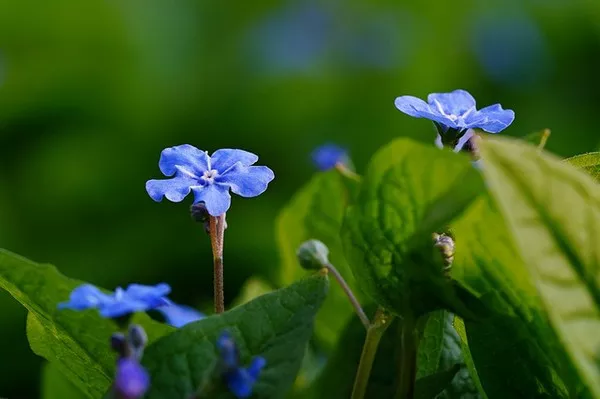Scientists from the University of California, Davis, have discovered that chloroplasts, the cellular organelles responsible for converting solar energy into food in plants, play a vital role in plant immunity against viral and bacterial pathogens. This groundbreaking research reveals a previously hidden aspect of plant defense mechanisms, shedding light on the significance of these tiny cellular powerhouses.
Chloroplasts, typically spherical in shape, are now recognized for their involvement in plant immunity. Notably, a small percentage of chloroplasts have the remarkable ability to change shape and extend tube-like projections called “stromules.” While stromules were first observed more than a century ago, their biological function remained a mystery until this study.
Past research indicated that when a plant detects an infection, chloroplasts increase stromule production. These stromules act as conduits, clustering chloroplasts around the nucleus and transporting pro-defense signals from chloroplasts to the nucleus. However, the specific genes responsible for stromule formation remained unidentified.
In this recent study led by Professor Savithramma Dinesh-Kumar, graduate student Nathan Meier, and their colleagues, a key protein essential for stromule biogenesis during immunity was pinpointed. Their findings, published on October 25 in Science Advances, illuminate the pivotal role of chloroplasts in plant defense.
To ascertain the significance of stromules in immunity, scientists needed to disable them and observe how plant cells without stromules would respond to pathogens. However, this presented a challenge, as the genes responsible for stromule formation were unknown. To overcome this obstacle, the researchers turned to kinesins, plant-specific proteins functioning as tiny motors that facilitate the movement of molecules and organelles within cells.
Their focus was on a unique type of plant kinesin capable of binding both microtubules and actin filaments. Overexpressing one of these kinesins, KIS1, led to stromule formation even in the absence of pathogen infection. When tobacco and Arabidopsis plants were genetically manipulated to suppress KIS1 production, they were unable to form stromules. As a result, their chloroplasts could not migrate towards the nucleus, rendering the plants defenseless against invading pathogens.
The researchers further dissected the roles of microtubules and actin by engineering KIS1 variants that exclusively bound to one or the other. Their findings demonstrated that KIS1 requires binding to microtubules for chloroplasts to form stromules, and, to facilitate chloroplast movement towards the nucleus, it must also bind to actin.
Additionally, the study explored the relationship between stromules and broader plant immunity. By genetically manipulating different immune signals, the researchers revealed that molecular signaling triggers stromule formation and that an intact immune signaling system is essential for stromules to develop. Dinesh-Kumar stated, “If we remove any of the known immune signaling genes, the chloroplasts lose the ability to make stromules, which suggests that these structures are an integral part of the immune signaling pathways that activate defense.”
This research marks the first evidence of a plant kinesin directly involved in plant immunity. It also signifies the first identification of the gene KIS1 related to chloroplast stromule biogenesis. These findings open new doors to comprehending the function of chloroplast stromules and why chloroplasts gather around the nucleus during plant immune responses. Dinesh-Kumar emphasized the potential of this knowledge to engineer resistance against pathogens at the cellular level, providing a novel approach to enhancing plant defense mechanisms.


